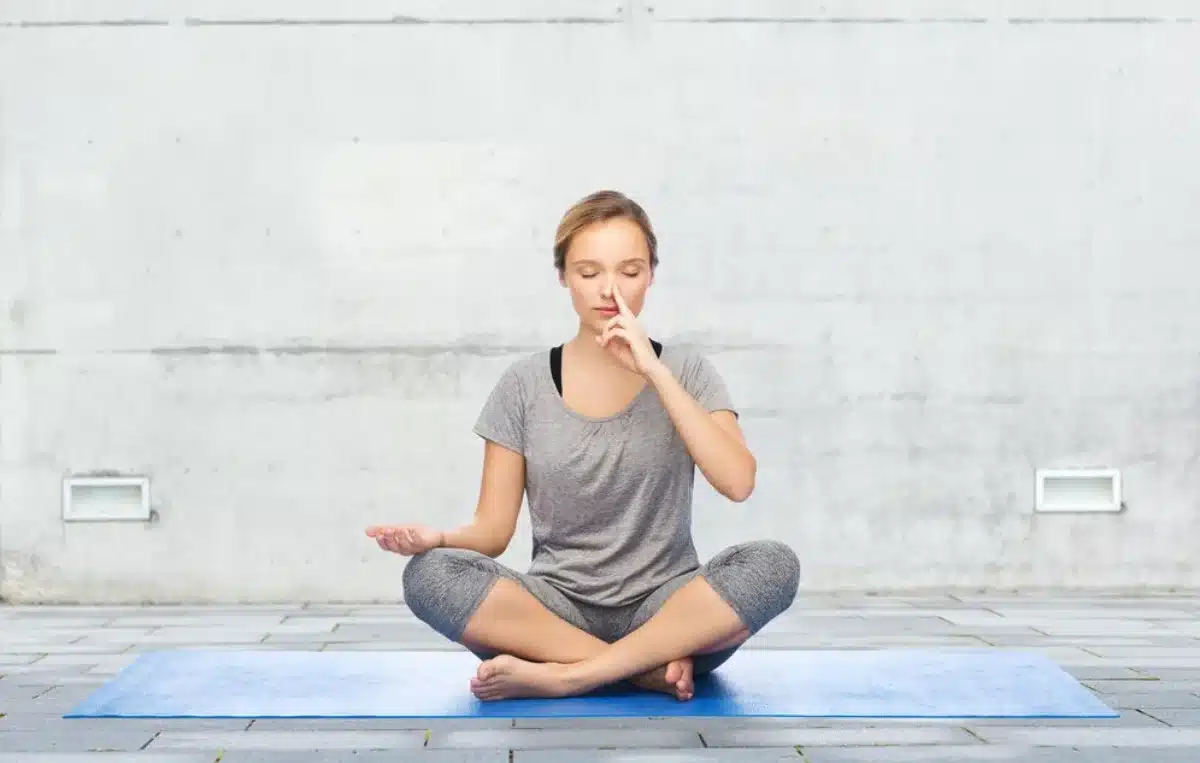
How to Use Meditation to Improve Athletic Performance
Muscles often take centre stage in athletics, but the power of the mind is equally critical. Mental acuity and the ability to compartmentalise stress are just as important for many athletes as filter preparation. Mindfulness training is now the game’s name for peak performance, with meditation at the vanguard.
Meditation is an ancient practice. It creates some focus, reduces stress, and builds mental power. Not simply a relaxation tool, it is a means to unleash an athlete’s full potential. This guide shows how meditation can boost athletic performance. It offers a simple, step-by-step way to add mindfulness to training routines.
Pro Tip: Consistency is key—make meditation a regular part of your routine to see lasting improvements in focus and stress management.

Quick Guide to Using Meditation for Improved Athletic Performance
- Start with Short Sessions: Begin with 5-10 minutes of meditation daily and gradually increase the duration as you become more comfortable.
- Focus on Breathing: Use breath awareness to stay grounded in the present moment, enhance lung efficiency, and improve endurance.
- Incorporate Guided Meditations: Utilise apps like Headspace or Calm for guided sports-specific sessions focusing on confidence, recovery, and sleep.
- Practice Mindfulness in Daily Activities: Bring mindfulness into warm-ups, cool-downs, eating, and sleep to improve focus and energy levels.
- Use Visualization Techniques: Visualise perfect performances regularly to build muscle memory and boost confidence.
Important: Meditation complements physical training but should not replace it. It’s an essential tool for enhancing mental strength, not a substitute for workouts.
The Science Behind Meditation and Athletic Performance
Meditation is not just about sitting in silence; it profoundly impacts the brain and body. Scientific research has shown that meditation can:
- Elevate Neural Efficiency: Meditation sharpens the mind’s ability to process swiftly. This leads to quicker reactions and sharper decision-making, especially under pressure.
- Harmonise Stress Hormones: It gracefully lowers cortisol levels, shielding you from stress-induced fatigue and muscle breakdown.
- Fortify the Mind-Muscle Connection: Through mindfulness, athletes become masters of their movement. This increased awareness enhances coordination and technique like never before.
- Cultivate Emotional Resilience: Meditation trains the mind to conquer anxiety and obliterate self-doubt. This boost in confidence shines under the spotlight of pressure.
- Accelerate Recovery: Meditation activates your body’s relaxation response, speeding up recovery and easing muscle soreness after intense training.
Adding meditation to their routine can give athletes a competitive edge. This benefit extends beyond physical training.
Key Benefits of Meditation in Athletics
Enhancing Mental Focus
Mental focus is crucial for athletic success. Intense concentration is essential, whether you’re a sprinter chasing victory or a football player making a game-winning pass. In a world full of distractions, steady focus is your ally. That’s where meditation comes in.
Meditation helps you stay present. It calms unwanted thoughts and boosts your thinking skills. Your attention span grows with consistent practice, and distractions lose their power. This heightened focus allows athletes to react quickly, anticipate opponents’ movements, and execute strategies precisely.
Effective Stress Management
Athletes face immense pressure—from external expectations to personal performance goals. This stress can manifest physically, leading to tension, fatigue, and suboptimal performance. Meditation helps by activating the body’s relaxation response, lowering cortisol levels, and promoting calm awareness.
By meditating regularly, athletes can develop a resilient mindset that allows them to stay composed under pressure. This mental clarity translates into improved decision-making during competitions.
Mindfulness Training for Improved Performance
Mindfulness is a key component of meditation that helps athletes stay fully present during their activities. This awareness enhances decision-making, reaction times, and overall body coordination.
Mindfulness training allows athletes to:
- Recognise and regulate emotions, preventing performance anxiety from taking over.
- Improve proprioception (body awareness), reducing the risk of injury.
- Develop a “flow state” where performance feels effortless and intuitive.
When athletes cultivate mindfulness, they gain control over their thoughts, emotions, and physical actions—leading to peak performance.

Step-by-Step Guide to Incorporating Meditation into Athletic Training
Integrating meditation into an athlete’s routine doesn’t require drastic changes. Here’s a structured approach to getting started:
Step 1: Start with Short Sessions
Begin with short meditation sessions, around 5 to 10 minutes per day. This manageable duration helps establish a habit without overwhelming the athlete. Over time, as comfort with the practice grows, gradually increase the session length to 15-30 minutes.
Step 2: Focus on Breathing
Breath awareness is a fundamental aspect of meditation. Encourage athletes to pay attention to their breathing. They should notice each inhale and exhale without changing its natural rhythm. This simple practice:
- Grounds the mind in the present moment
- Enhances lung efficiency
- Improves oxygen flow, boosting endurance
One technique to try is box breathing (inhale for 4 seconds, hold for 4 seconds, exhale for 4 seconds, hold for 4 seconds). This method is widely used by elite athletes and military personnel to maintain composure under stress.
Step 3: Incorporate Guided Meditations
Guided meditations provide structure and motivation for beginners. Apps like Headspace, Calm, and Insight Timer offer sports-specific meditation tracks that help athletes develop mental discipline and resilience.
Some guided meditations focus on:
- Pre-competition confidence
- Post-training recovery
- Sleep optimisation
Step 4: Practice Mindfulness in Everyday Activities
Mindfulness isn’t limited to sitting still. Encourage athletes to incorporate mindfulness into their daily routines, such as:
- Warm-ups and Cool-downs – Focusing on each stretch and movement.
- Eating – Practicing mindful eating to enhance digestion and energy levels.
- Sleep Preparation – Using meditation before bed to improve rest and recovery.
Step 5: Utilize Visualization Techniques
Visualization is a powerful tool that primes the brain for success. Athletes can practice mental rehearsal, vividly imagining themselves executing perfect performances. Studies show that visualisation uses the same brain pathways as physical practice. This helps build muscle memory and increase confidence.
To visualise effectively:
- Find a quiet space and close your eyes.
- Imagine yourself in a real game or competition scenario.
- Focus on the details, how the court/field feels, the sounds around you, and your movements.
- Repeat this process daily to reinforce positive mental conditioning.
Additional Expert Tips & Common Mistakes to Avoid
Best Practices
- Consistency is Key: Meditation requires regular practice to yield results like physical training.
- Personalised Practice: Each athlete is unique. Tailor meditation techniques to focus on relaxation, focus, or visualisation.
- Integration with Physical Training: Combine meditation with stretching, yoga, or post-workout recovery sessions.
Common Mistakes
- Impatience: Meditation’s benefits accumulate over time. Expecting immediate results can lead to frustration.
- Overemphasis on Technique: While technique is important, meditation is about experience. Athletes should focus on being present rather than perfect.
- Ignoring Emotional Awareness: Meditation isn’t just about focus. It’s also about understanding and handling emotions to strengthen mental resilience.
FAQs
How long does it take to see results from meditation?
Most athletes see better focus and manage stress well after a few weeks of regular practice. However, long-term benefits accumulate over months of regular meditation.
Can meditation replace physical training?
No. Meditation is a helpful tool. It boosts mental and emotional health, which can improve athletic performance. It should be used alongside physical training, not as a replacement.
What type of meditation is best for athletes?
Mindfulness meditation, breath awareness, and visualisation are particularly effective for athletes. These techniques enhance focus, control stress, and improve reaction time.
Is meditation helpful for team sports?
Yes! Meditation boosts team cohesion, communication, and focus. This helps both individual and team sports.

Unlocking Peak Performance Through Meditation
Adding meditation to athletic training is like finding a hidden superpower. It changes an athlete’s path by unlocking peak performance and strong mental resilience. By improving focus, handling stress, and practising mindfulness, athletes gain a competitive edge that is more than just muscle.
Take the first step today, and explore the world of meditation. Your mind, body, and performance will thank you.


